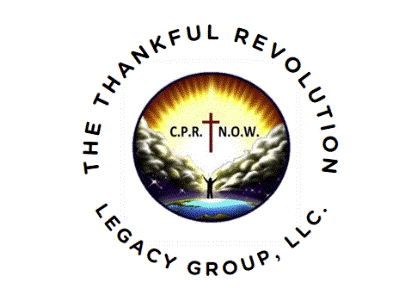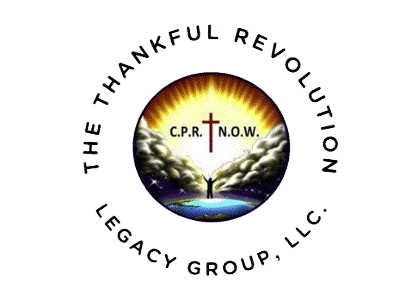Blog Posts

Rebirth After Trauma: A Journey Back to Well-Being
Have you ever felt like your whole world has been turned upside down? Like everything you once depended on is suddenly gone, leaving you feeling lost and unsure? Trauma can do that — it shakes up your life in ways that are hard to cope with. But even though trauma is tough, it also offers a chance to rebuild yourself in ways you never imagined.
I'm sharing a deeply personal piece today about something many of us encounter but often feel too vulnerable to talk about openly — trauma. My journey through healing has been transformative, not just in regaining my old self but in discovering a new, perhaps even better version of myself.
In this blog, we’ll talk about how you can take the changes that come with trauma and turn them into a path of self-discovery and growth.
The Impact of Trauma on Normal Life
The effect of trauma on the brain and how it affects behaviors | John Rigg | TEDxAugusta
Trauma can feel like a powerful storm that suddenly hits your life, causing chaos and instability. One moment, everything feels safe and familiar, and the next, you're in a world that feels scary and out of control. At first, shock and denial help you cope, but soon, deeper emotions like sadness and anxiety take over. These heavy feelings can make even simple tasks seem impossible.
As the shock wears off, ongoing sadness and anxiety can set in. It's not just about feeling down — it’s a deep sense of loss that sticks with you. Anxiety can make your mind race with worry and fear, leaving little space for peace or hope. Your comfortable thoughts now feel like a place of constant distress.
Trauma affects every part of your life. You might withdraw from relationships, struggle to focus at work, and even feel physical symptoms like exhaustion from constant stress. Everyday decisions become overwhelming, and it feels hard to regain a sense of control or safety.
But even during this turmoil, there is hope. The path to healing and rebuilding a sense of normalcy is possible, though it may look different than before. This leads to the concept of rebirth — a transformation that comes not from forgetting the past, but from embracing the new person you become through the healing process.
The Journey of Rebirth After Trauma
Rebirth after trauma isn’t about erasing the past or going back to who you were before. It’s about accepting the new person you’ve become through your struggles. Trauma changes you, and this can be hard to deal with at first. But as you start to heal, you may discover new strengths and abilities you didn’t know you had. Ecclesiastes 3:1 (NIV) reminds us,
“There is a time for everything, and a season for every activity under the heavens.”
This verse highlights that our journey of transformation has its own timing and purpose.
After going through my own difficult experience, I found myself becoming more patient and kinder to myself. I started focusing on what really matters and found joy in small, everyday moments that I used to overlook. This change wasn’t something I forced—it naturally happened as I worked through my challenges.
Rebirth is more than just getting better; it’s about growing into a stronger and more self-aware person. You might find yourself reassessing what’s important, letting go of things that no longer help you, and gaining a clearer understanding of who you are and what you want in life.
This verse underscores the idea of becoming a new creation through our trials, embodying the transformation that follows.
This journey can lead to a more fulfilling and purposeful life, showing that even though trauma is tough, it can also guide you to personal growth and transformation.
The Path to Recovery
Recovering from trauma is a journey that takes time, patience, and a willingness to explore different paths toward healing. Here are some steps that can help you reclaim your well-being and come out stronger.
1. Embrace the Shadows:
To start feeling better after trauma, it's important to face and understand the shadows of your experiences. This means acknowledging how trauma has affected your life. I remember when I first dealt with my own trauma. I had to confront painful memories and see how they shaped my thoughts and actions. Proverbs 20:30 (NIV) states,
“Blows and wounds cleanse away evil, and beatings purge the inmost being.”
This verse emphasizes the need to confront and work through our struggles for true healing.
One practical step that helped me was keeping a journal where I wrote down my feelings and reflections. This helped me gain clarity and start to understand how trauma impacted me. It's essential to allow yourself to feel and express these emotions.
Seeking help from a professional can also be incredibly useful. For me, exploring new therapies like art therapy and somatic experiencing offered fresh perspectives and helped me work through my trauma in ways that traditional methods didn't.
2. Craft Your Sanctuary:
Creating a healing space is a key part of recovery. I turned my living area into a calm and safe haven. I added soft lighting, soothing colors, and personal items that made me feel secure. Setting mental and emotional boundaries was also crucial. Proverbs 4:23 (NIV) says,
“Above all else, guard your heart, for everything you do flows from it.”
This verse underscores the importance of creating a protective and nurturing environment for your emotional well-being.
For instance, I learned to protect my time by saying no to things that drained me and focusing on what nurtured my well-being. Building a support network was another important step. I reached out to friends and family who supported me and found new communities that matched my evolving self.
Connecting with people who can understand your journey makes you feel less alone and more supported.
3. Reconstruct the Self:
Rediscovering and redefining your identity after trauma involves finding new strengths and reimagining your path. In my journey, I tried new activities that revealed different aspects of myself.
This verse reflects the transformative process of embracing new beginnings and growth.
For example, I started painting and writing, which helped me connect with parts of myself overshadowed by trauma. Setting small, achievable goals and creating a vision board with my dreams played a big role in rebuilding my self-esteem.
This board served as a daily reminder of the future I wanted, helping me make a strategic plan with both short-term and long-term goals for my healing and growth.
4. Integrate Transformative Rituals:
Incorporating transformative rituals into your daily routine can greatly support your healing. Engaging in mindful activities like journaling or dancing helps process emotions constructively. Psalm 46:10 (NIV) says,
“Be still, and know that I am God.”
This verse highlights the importance of stillness and mindfulness in connecting with your inner self and God during your healing journey.
For me, practicing mindfulness through breathing exercises and nature walks brought a sense of calm. It’s also important to revitalize your body. I explored holistic practices like yoga and acupuncture, which improved my physical and emotional well-being.
Creating a personalized self-care routine with regular relaxation and rejuvenation activities can help you maintain balance and continue progressing in your healing journey.
5. Redefine Relationships:
Navigating and redefining relationships is a key part of healing. Nurture relationships that support your growth and move away from those that no longer serve you. Ecclesiastes 4:9-10 (NIV) reminds us,
“Two are better than one, because they have a good return for their labor: If either of them falls down, one can help the other up.”
I joined new social groups that matched my interests and values. Improving communication was also important. Practicing clear, assertive expression allowed me to communicate my needs and boundaries.
Engaging in open and honest conversations can deepen your relationships, creating a supportive environment for your continued recovery.
6. Embrace the Journey:
Recognizing and celebrating your progress is essential for sustaining long-term well-being. I made it a point to acknowledge and reward myself for my achievements, no matter how small. Psalm 126:3 (NIV) says,
“The Lord has done great things for us, and we are filled with joy.”
This verse highlights the importance of recognizing and rejoicing in the positive changes and progress made in your journey.
This could be as simple as treating myself to a day out or enjoying a favorite activity. Staying open to new insights and adapting strategies is also crucial for ongoing growth. Embracing change and flexibility can allow you to handle new challenges.
7. Share the Light:
Using your experiences to help others can be a meaningful part of your healing journey. Sharing my story and guiding others through similar experiences was incredibly rewarding. Getting involved in community initiatives or support organizations provided opportunities to contribute positively and connect with others.
This verse encourages sharing your light and experiences to inspire and support others in their own journeys.
Spreading hope through inspirational stories and advocating for mental health awareness became a vital part of my journey. By supporting or advocating for initiatives that promote recovery and well-being, I was able to help others while reinforcing my own healing.
Conclusion
How to live a rich life after a trauma? | Anne Grethe Solberg | TEDxArendal
Recovering from trauma is not a straightforward path. It's messy, it's painful, and it's incredibly challenging. But it's also filled with moments of profound joy and realization. The journey back to well-being is not just about healing — it's about rediscovering and reinventing oneself.
Start today by appreciating how far you’ve come, even if it feels small. Take simple steps to reconnect with what makes you happy and focus on what truly matters to you now.
Transformation takes time. Keep moving forward, even when it’s hard. The stronger, more authentic version of yourself is ready to shine — take that first step today, and let your journey lead you to a life that truly feels right for you.
FAQs
1. How long does it take to heal from trauma?
Healing from trauma varies greatly and can take months or even years, depending on the individual. It’s important to honor your own pace and be patient, understanding that the healing process is not always linear and may have ups and downs.
2. How does one maintain progress after the initial healing phase?
Maintaining progress involves integrating new habits and practices into daily life. This can include regular self-reflection, continued therapy or support, setting and working towards personal goals, and staying connected with supportive communities. It's also important to recognize and celebrate milestones in the healing journey.
3. Can I fully recover from trauma?
While you might not erase all scars or memories, you can recover by learning to live a fulfilling and meaningful life despite the trauma. Recovery is about regaining control, developing coping strategies, and finding the strength to thrive, even with the past still present.


